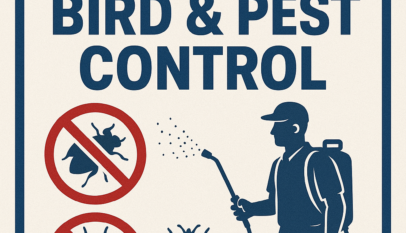
Engaging in activities is essential for everyone, including adults with disabilities. Many enjoyable and adaptive options exist that cater to different interests and abilities. Finding accessible activities not only fosters a sense of community but also enhances overall well-being.
Art and crafts are excellentActivities for Adults with Disabilities, providing a creative outlet that allows adults to express themselves while developing motor skills. Options like painting, pottery, or scrapbooking can be adapted with the right tools to accommodate various needs.
Outdoor activities are also valuable, offering opportunities for social interaction and physical exercise. Local parks often feature accessible walking trails and community events that welcome participation from adults with diverse abilities.
Adaptive Sports and Physical Activities
Adaptive sports and physical activities provide adults with disabilities opportunities for engagement, socialization, and fitness. They are designed to be inclusive and promote participation at various skill levels.
Team Sports
Team sports are excellent for fostering camaraderie and teamwork among participants. Common adaptive team sports include wheelchair basketball, sitting volleyball, and unified soccer.
In wheelchair basketball, players use specially designed wheelchairs. Games follow standard basketball rules, with adaptations to ensure inclusiveness.
Sitting volleyball allows players to compete at a high level regardless of mobility. Teams of six compete on a smaller court while sitting, which encourages strategic play and collaboration.
Unified soccer involves pairing players with disabilities alongside able-bodied teammates. This promotes inclusivity, as everyone works together towards a common goal.
Individual Sports
Individual sports provide tailored experiences that can accommodate varying levels of ability. Popular options include adaptive tennis, cycling, and archery.
Adaptive tennis can be played in various forms, including using modified equipment and courts. This sport emphasizes skill development and can be played recreationally or competitively.
Cycling adaptations include hand cycles and tricycles, which ensure safety and accessibility. Riding can be done individually or in groups, emphasizing enjoyment and exercise.
Archery offers a focus on precision and concentration. With specialized equipment, it becomes accessible for different abilities, making it both rewarding and therapeutic.
Water Activities
Water activities offer a unique medium for exercise and enjoyment. Options such as adaptive swimming, kayaking, and water aerobics are popular choices.
Adaptive swimming programs cater to different needs, using specialized techniques and support equipment. Swimmers can improve physical health while enjoying the therapeutic benefits of water.
Kayaking allows individuals to explore water bodies while maintaining physical activity. Adaptive kayaks provide stability, making it easier for those with mobility devices to participate.
Water aerobics offers low-impact exercise suitable for various ability levels. Classes often include modifications and support, allowing everyone to engage in physical activity safely.
Creative and Learning-Based Activities
Engaging in creative and educational activities offers adults with disabilities opportunities for self-expression and skill development. The following activities focus on artistic creation, musical exploration, and learning through workshops.
Arts and Crafts
Arts and crafts provide a platform for creativity and personal expression. Activities can include painting, pottery, and sewing. These hands-on projects help improve fine motor skills and enhance cognitive abilities.
Setting up a craft station with various supplies encourages experimentation. For example, materials could include:
- Paints
- Brushes
- Clay
- Textile supplies
Participants can follow guided instructions or explore their imaginative ideas. This flexibility promotes confidence and fosters social interaction during collaborative projects.
Music and Dance
Music and dance activities stimulate emotional release and physical movement. Adults with disabilities can benefit from engaging in rhythm-based exercises and group dance sessions.
Programs may include:
- Drum circles
- Dance classes focusing on different styles
- Singing sessions
These activities not only enhance coordination but also build teamwork skills. Instruments can range from simple shakers to more complex tools, accommodating varying abilities.
By participating in music and dance, individuals can connect with others, enjoy physical activity, and express emotions through movement.
Educational Workshops
Workshops offer structured learning experiences tailored to different interests and skills. Topics can range from technology skills to cooking classes, promoting independence and knowledge acquisition.
For instance, a cooking workshop might cover:
- Meal planning
- Basic cooking techniques
- Nutrition education
Participants gain practical life skills that can enhance their quality of life. Workshops should encourage questions and provide hands-on experiences, ensuring all learners can engage at their own pace.
Further, this environment cultivates social bonds as individuals share their successes and challenges in a supportive space.
British Virgin Islands Company Registration Guide for 2025 Compliance and Benefits
The British Virgin Islands Company Registration process is straightforward, efficient, and…








